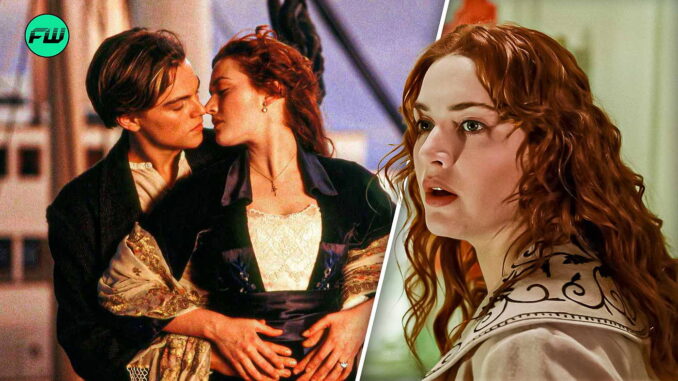
The red carpet of a Hollywood premiere is a landscape of shimmering illusion, a place where triumph is codified in flashing lights, roaring crowds, and the polished smiles of its protagonists. For the unveiling of Titanic in 1997, it was a spectacle of unprecedented scale, a global event that transcended mere cinema to become a cultural phenomenon. Yet, amidst this colossal wave of jubilation, Kate Winslet, its luminous star, was navigating an unseen, more profound shipwreck within herself. Her recent revelation – that she was pressured to attend this pinnacle of her career, despite being in the raw, agonizing throes of mourning her partner’s death from bone cancer – peels back the gilded facade of fame to expose the chilling, often brutal, collision of private grief and public expectation.
Imagine the scene: a kaleidoscope of light and sound, the air thrumming with anticipation. Fans clamoring, reporters shouting questions, the very atmosphere charged with an almost electric joy. Kate Winslet, the "English Rose" who had captivated millions, was expected to embody this collective ecstasy. Her role was not merely to be present, but to perform joy, to mirror the unbridled elation of the world around her. She was to be the vibrant, unburdened heroine of the hour, sailing triumphantly on the crest of a wave she had helped create. The industry, a leviathan of commercial interests and PR machinery, demanded her presence, her effervescence, her unblemished star power. Anything less would be deemed unprofessional, ungrateful, a dent in the unsinkable narrative.
But beneath the flawless makeup and the dazzling gown, Winslet carried an anchor of unspeakable sorrow. Days, perhaps weeks, earlier, she had stood by the bedside of a loved one, watching life ebb away, the cruel tendrils of bone cancer slowly claiming a heart she cherished. Grief, in its rawest form, is an isolating, all-consuming force. It demands silence, solitude, the space to unravel, to weep, to simply be with the gaping wound of absence. It is a slow, cold drowning, a descent into the ink-dark depths where the light of the public world feels like an alien, searing glare.
The pressure exerted upon her was not a polite request; it was an invisible hand, pushing her onto the stage of her own personal tragedy, forcing her to wear a mask of celebration over a face streaked with silent tears. It was the unyielding machinery of Hollywood, which recognizes no personal boundaries when a blockbuster demands its due. The unspoken creed: the show must go on. Her private pain was deemed irrelevant, a inconvenient glitch in the meticulously orchestrated marketing campaign. She was an asset, a face, a symbol, and the symbol had to align with the narrative of triumph.
So, Winslet walked the red carpet, a ghost at her own celebration. Every forced smile, every polite nod, every laugh that didn't quite reach her eyes, was a betrayal of her true self, an act of supreme emotional labor. Her presence was a performance of profound stoicism, a testament to the iron will required to compartmentalize such monumental grief. Each flashbulb that momentarily blinded her must have felt like a cruel spotlight illuminating the chasm between her inner world and the external spectacle. The thunderous applause must have been a hollow echo against the deafening silence of her loss. She was selling a dream, a fantasy of love and adventure, while her own reality was a nightmare of bereavement.
Winslet’s candid confession shatters the polished veneer of celebrity, revealing the profound human cost of its demands. It illustrates how fame can strip away the right to mourn privately, to heal quietly, to simply be a person in pain. It exposes the inherent cruelty of an industry that often prioritizes profit and publicity over genuine empathy. Her story is not just about a movie star; it is a universal testament to the struggle between our authentic selves and the roles society, or circumstance, forces us to play. It reminds us that beneath the shimmering surfaces of public triumph, there often lie unseen icebergs of private sorrow, silently endured by those we deem "lucky" or "successful." And sometimes, the greatest act of courage is not facing the camera, but simply enduring the internal shipwreck, while pretending to sail gloriously on.